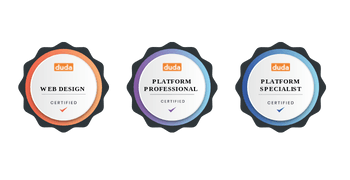Impacts on Paid Marketing for Small Businesses: Google vs. Meta
In the ever-evolving landscape of digital marketing, recent privacy changes by major players like Google and Meta (formerly Facebook) have sent ripples through the industry. Small businesses, often relying heavily on paid marketing, are particularly affected by these shifts. This article dives into the impacts of these changes, comparing Google and Meta, and explores the implications for small businesses navigating the complex realm of online marketing.

The Shifting Landscape of Online Advertising
Introduction to Privacy Changes
The digital marketing ecosystem has been shaped by recent privacy changes driven by concerns over data security and user privacy. Both Google and Meta have implemented measures to enhance user control over their data, limiting advertisers' access to certain information.
Impact on Targeted Advertising
Historically, targeted advertising has been a cornerstone of digital marketing success. However, with increased restrictions on tracking user behavior and preferences, small businesses are facing challenges in delivering personalized ads to their target audiences.
Google: Navigating the Privacy Terrain
Emphasis on User Privacy
Google, with its dominant search engine and advertising platforms, has implemented privacy-centric measures, such as the elimination of third-party cookies in Chrome. While this enhances user privacy, it poses challenges for small businesses that rely on detailed user data for effective targeting.
Shift Towards First-Party Data
Small businesses are now encouraged to prioritize the collection of first-party data directly from their website visitors. This shift requires businesses to build trust with their audience and incentivize users to share information voluntarily, altering traditional marketing approaches.
Meta: Adapting to a New Reality
Meta's Response to Privacy Concerns
Meta, recognizing the changing landscape, has taken steps to adapt its advertising model. The company has introduced aggregated event measurement, limiting the data accessible to advertisers while still providing insights for campaign optimization.
Embracing Meta's Ecosystem
For small businesses, leveraging Meta's full ecosystem, including Instagram and WhatsApp, becomes crucial. Cross-platform marketing and creative use of features within Meta's family of apps can help maintain effective advertising strategies despite evolving privacy restrictions.
Navigating Challenges for Small Businesses
Budget Allocation and ROI
With the impact on targeted advertising, small businesses must reassess their budget allocations and expectations for return on investment (ROI). Experimentation with different platforms and ad formats becomes essential to identify what works best in the new privacy-focused landscape.
Creative Content and Engagement
In response to restricted targeting options, businesses need to focus on creating compelling and relevant content. Engaging advertisements that resonate with a broader audience can become a powerful tool for small businesses looking to maintain visibility and drive conversions.
The privacy changes implemented by major digital advertising platforms present challenges and opportunities for small businesses. Navigating this new terrain requires a strategic shift in how businesses approach paid marketing, emphasizing user trust, first-party data, and creative content.
ASK US
Ready to adapt your small business's marketing strategy to the changing landscape? Stay informed, experiment with different platforms, and prioritize user engagement. By embracing the evolving nature of digital advertising, you can position your business for success in the post-privacy change era.
We will get back to you as soon as possible
Please try again later
Frequently Asked Questions
-
How can small businesses adapt their advertising strategies to the privacy changes on Google and Meta?
Small businesses should focus on collecting first-party data, experimenting with various ad formats, and leveraging the full ecosystems of Google and Meta. Prioritize user trust, engaging content, and cross-platform marketing.
-
Are there tools that can help small businesses navigate the changes in digital advertising?
Yes, tools like Google Analytics, Facebook Business Manager, and other analytics platforms can provide valuable insights into user behavior and campaign performance. Additionally, consider exploring customer relationship management (CRM) tools to manage and utilize first-party data effectively.
-
How can small businesses measure the success of their advertising campaigns in the new privacy-focused landscape?
Focus on key performance indicators (KPIs) such as click-through rates, conversion rates, and engagement metrics. Additionally, closely monitor user interactions on your website and leverage analytics tools to assess the impact of your advertising efforts.
Articles







